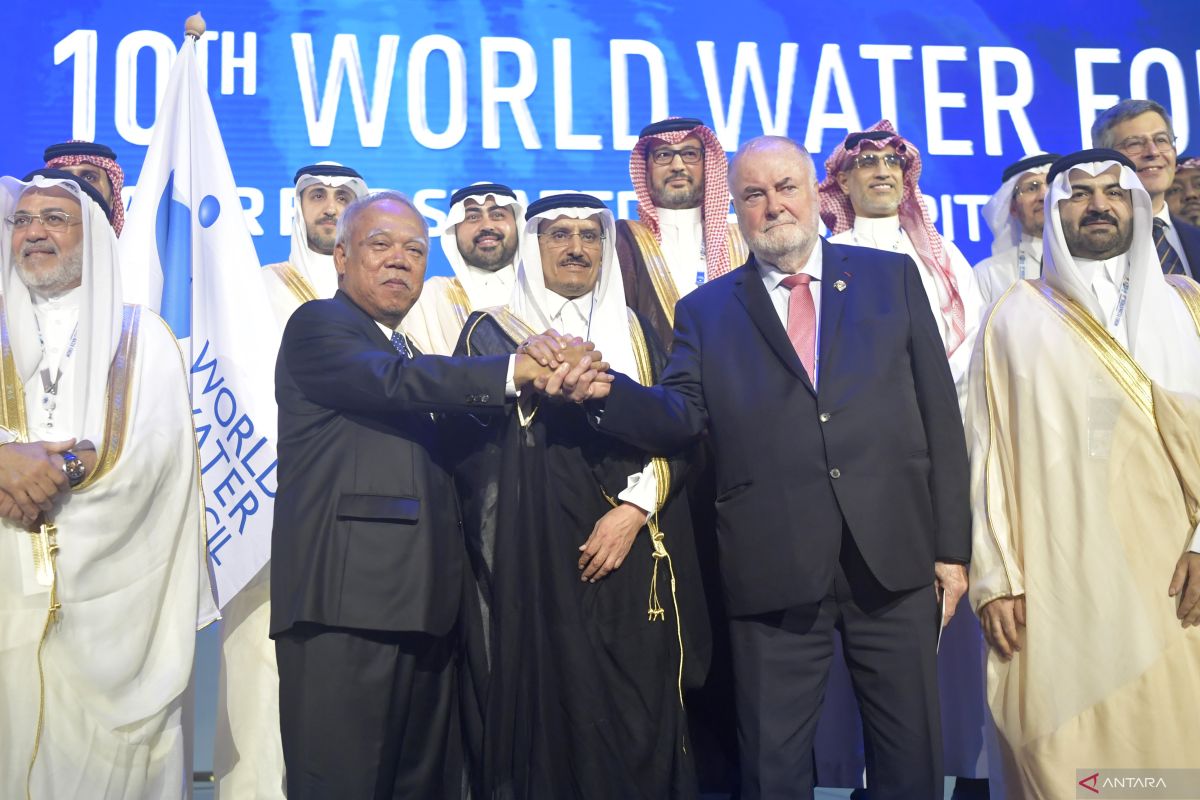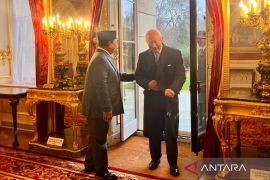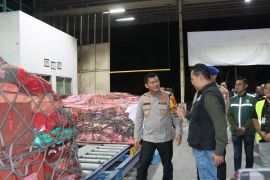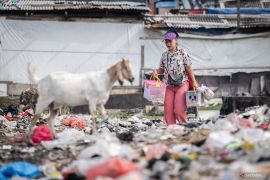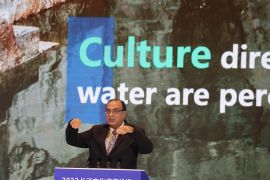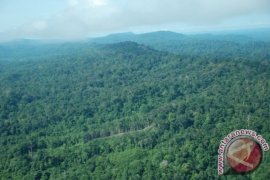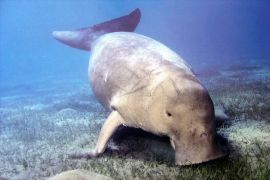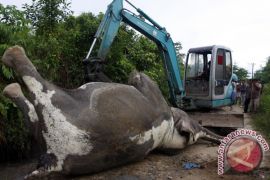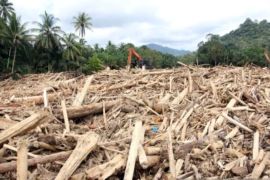"All participants in this segment welcomed this decision to further consolidate river basin management as a political priority by continuing to include river basin issues in high-level political segments," secretary general of the International Network of Basin Organizations (INBO), Eric Tardieu, said in Badung, Bali, on Friday.
He informed that the river basin issue also covers the ministerial, parliament, and regional government segments.
The Bali Basin Champions Agenda includes collaborative steps such as the launch of the Twin Basin Initiative (TBI), a global program for capacity building and experience exchange between global organizations working on integrated water resources management (IWRM) at the national river basin level and across countries.
To achieve the goal, TBI will support joint capacity-building activities, such as webinars, face-to-face exchanges, and study visits, as well as learning dissemination on a global scale, such as peer-to-peer and at the community level, Tardieu informed.
INBO is an organization that monitors the implementation of integrated water resources management in national and transnational river areas, lakes, and aquifers from an integrated governance perspective.
The organization pays attention to strategic planning, joint information systems, and sustainable financing in efforts to address the challenges of climate change, biodiversity preservation, and cross-border cooperation.
Earlier, at the opening of Basin Segment Day, Minister of Public Works and Public Housing, Basuki Hadimuljono, said that collaboration is key to the successful management of basins or river areas.
"Basin Segment Day is a valuable opportunity to discuss the next steps to increase cooperation and exchange experiences regarding basin management," he added.
Earlier, The 10th World Water Forum formulated priorities for handling the water crisis n the four regions of the Asia-Pacific, Mediterranean, America, and Africa.
Each regional coordinator discussed development and identified priority steps related to the water crisis at the local and regional levels at the forum.
"The collaboration is not merely a strong foundation for a sustainable future (water management), but it also plays a crucial role in the success of water management in each region," president of the World Water Council (WWC), Loic Fauchon, stated in Bali on Thursday.
At the session, each regional coordinator shared the results of one year of discussions and disseminated real ideas for overcoming regional water challenges. The forum also sought to provide an understanding of aspects of common water priorities, which often differ from one region to another, he added.
Speakers at the session comprised president of the Mediterranean Water Institute (IME), Alain Meyssonnier; the CEO of Sabesp, Benedito Braga; executive secretary of the African Ministers' Council on Water (AMCOW), Rashid Mbaziira; chair of the governing council of the Asia-Pacific Water Forum (APWF), Changhua Wu; and Eelco Van Beek from the Asian Development Bank (ADB).
According to Fauchon, all regional process sessions must be utilized optimally to forge collaboration and find the best solutions to water problems, such as addressing water issues in each area as well as between related areas.
The 10th World Water Forum is being held in Nusa Dua, Bali, from May 18–25, 2024, to discuss water conservation, clean water and sanitation, food and energy security, and natural disaster mitigation.
A total of 244 water-related discussion sessions at the forum are expected to offer concrete results on global water management.
The forum has produced several ministerial declaration points that have been ratified. At least 106 countries and 27 international organizations have joined the declaration.
The declaration covers the establishment of a center of excellence on water and climate security to develop capacity and utilize superior facilities.
It also seeks to increase and encourage the management of integrated water resources on small islands.
Although Indonesia is surrounded by water, the country still needs a good management system to address the issue of clean water quality and availability.
The declaration also includes a proposal to designate World Lakes Day to highlight lakes as a water source supporting humans, besides their social and economic functions.
The commemoration of World Lakes Day is not hoped to be just symbolic but become one of the main keys to preserving lakes around the world.
Meanwhile, a concrete action compendium covering 113 projects in the water and sanitation sector worth Rp148.94 trillion (US$9 billion) has also been ratified at the forum.
Related news: World Water Forum: Delegates commit to river basin management
Related news: 10th World Water Forum formulates priorities in four regions
Related news: Indonesia hands over baton to next World Water Forum host S Arabia
Editor: Arie Novarina
Copyright © ANTARA 2024
